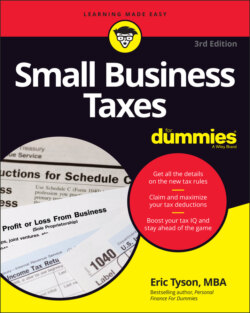Читать книгу Small Business Taxes For Dummies - Eric Tyson - Страница 62
Limited liability companies (LLCs)
ОглавлениеIn recent decades, a new type of corporation has appeared. Limited liability companies (LLCs) offer business owners benefits similar to those of S corporations and partnerships but are even better in some cases.
Like an S corporation, an LLC offers liability protection for the owners — hence the name limited liability company. In addition to the veil of overall liability protection for the owner’s personal finances, an owner’s liability for business debts is limited in an LLC to their percentage ownership share in the business.
LLCs also pass the business’s profits through to the owner’s personal income tax returns, like a sole proprietorship or partnership. You can pass through losses as well and deduct them against your other income so long as you materially participate in the business.
LLCs are generally much simpler to set up and administer than a corporation. But, to be realistic going into it, don’t expect an LLC to be as simple as a sole proprietorship. And LLCs don’t give you the ability to tap into some of the tax advantages (for example, specific fringe benefits) that some corporations offer.
LLCs have fewer restrictions regarding shareholders than S corporations. For example, LLCs have no limits on the number of shareholders, and the shareholders can be foreigners, corporations, or partnerships.
Compared with S corporations, the only additional restriction LLCs carry is that sole proprietors and professionals can’t always form LLCs (although some states allow this). All states now permit the formation of LLCs, but most state laws require you to have at least two partners for an LLC to be taxed as a partnership and not be a professional firm.
Single-owner LLCs (which also include married couples in community property states) are treated as sole proprietorships and file Schedule C of Form 1040 for tax purposes, unless the owner elects to file as a corporation on Form 8832, “Entity Classification Election.” A domestic entity that has more than one member will default to a partnership. An LLC with multiple owners can either accept its default classification as a partnership, or file Form 8832 to elect to be classified as an association taxable as a corporation. This form is for informational purposes only. Keep in mind that LLCs aren’t taxed federally; income is passed through to the company’s owners/shareholders. However, numerous states levy a tax on LLCs and require an annual tax filing. Some states like California go even further with fees. California has a fee based on gross receipts, not net income. A California LLC with $500,000 in gross receipts pays $820 tax plus a $2,500 fee for a total of $3,320, even if it reports a net loss for the year after expenses.
